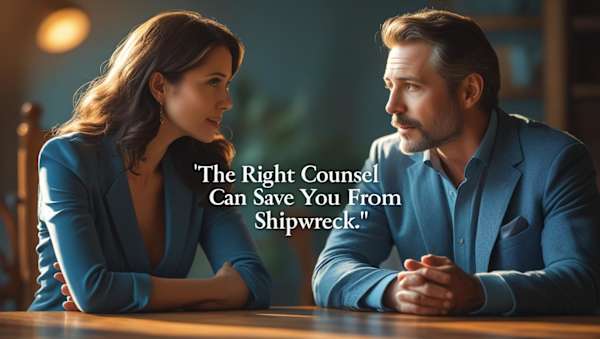In 1628, the Swedish warship Vasa set sail on what was meant to be a triumphant maiden voyage. Within minutes, it capsized and sank in Stockholm harbor, taking with it not just a ship, but a powerful lesson in what happens when we ignore sound counsel and rush decisions.
While the Vasa’s story is usually taught in engineering and leadership circles, it holds deep relevance for anyone trying to make wise personal choices today.
Let’s walk through the Vasa’s story—and then explore what it means for how we make decisions about our own lives.
The Vasa’s Tragic Journey
The Vasa was designed to be a floating fortress, a symbol of Sweden’s growing naval power. But somewhere along the way, things went terribly wrong:
- The ship was top-heavy with too many cannons on the upper decks and not enough ballast to stabilize it.
- Stability tests failed, but leadership pushed forward anyway.
- The king kept changing specifications, demanding heavier firepower even after construction was underway.
- Those working on the ship were afraid to speak up, possibly fearing the consequences of questioning royal authority.
On the day of the launch, the Vasa traveled barely 1,300 meters before it keeled over and sank, right in front of a stunned crowd.
It wasn’t just a shipwreck—it was the consequence of ignoring solid advice, dismissing clear warnings, and prioritizing speed and appearance over long-term stability.
What This Means for Us: Decision-Making That Stands
You and I may never build warships, but we’re constantly constructing something: our careers, relationships, financial futures, and personal values.
When we make decisions, are we acting like the builders of the Vasa—or like people grounded in wisdom?
Here are some key lessons we can apply:
1.
Seek Counsel From Proven Thinkers
The king’s advisors may have known the dangers, but their voices weren’t heard. In our lives, we need to surround ourselves with people who have demonstrated sound judgment—not just people who will tell us what we want to hear.
Ask: Am I listening to people who are grounded, experienced, and unafraid to tell me the truth?
2.
Make Space for Honest Feedback
The builders of the Vasa likely saw the flaws, but the leadership climate didn’t allow for open dialogue. If we make decisions in a bubble—or silence those who disagree with us—we’re setting ourselves up to capsize.
Ask: Do I truly welcome advice that challenges my perspective? Or am I brushing off warning signs because I don’t want to change course?
3.
Don’t Sacrifice Stability for Appearance
The Vasa was built to impress, but its beautiful carvings couldn’t save it from tipping over. Sometimes we make decisions that look good on the outside (the flashy job, the picture-perfect relationship, the risky shortcut) but can’t bear the weight of real life.
Ask: Am I chasing what looks good, or what actually holds up?
4.
Be Wary of Rushed Timelines
The king wanted the ship completed quickly, and that urgency overrode the need for careful craftsmanship. When we rush decisions, we can miss critical flaws that would have been obvious with just a bit more patience.
Ask: Am I forcing a decision before it’s ready, just because I feel pressure to act?
5.
Test Your Choices Before You Commit
The Vasa failed its stability test—but the ship sailed anyway. In our own lives, there are often small, low-risk ways to “test” a decision before fully committing.
Ask: Have I tested this choice in smaller ways? Have I sought out hard questions to see if it truly holds up?
Final Thought: Build a Life That Floats
The Vasa is now a museum piece—beautiful, but broken. Its story could have been different if the people building it had the freedom to speak, the wisdom to listen, and the courage to pause.
When it comes to your own decisions—big or small—don’t build a life that looks impressive but sinks under pressure. Build a life that floats.
Choose advisors who have proven themselves wise.
Listen to sound counsel—even when it’s uncomfortable.
Be willing to slow down.
Test before you leap.
That’s how you build something that lasts.
Want to Go Deeper?
If this resonated with you, I’d love to hear how you’re applying these principles in your own life. Drop a comment or share this post with someone who’s standing at a decision crossroads.



